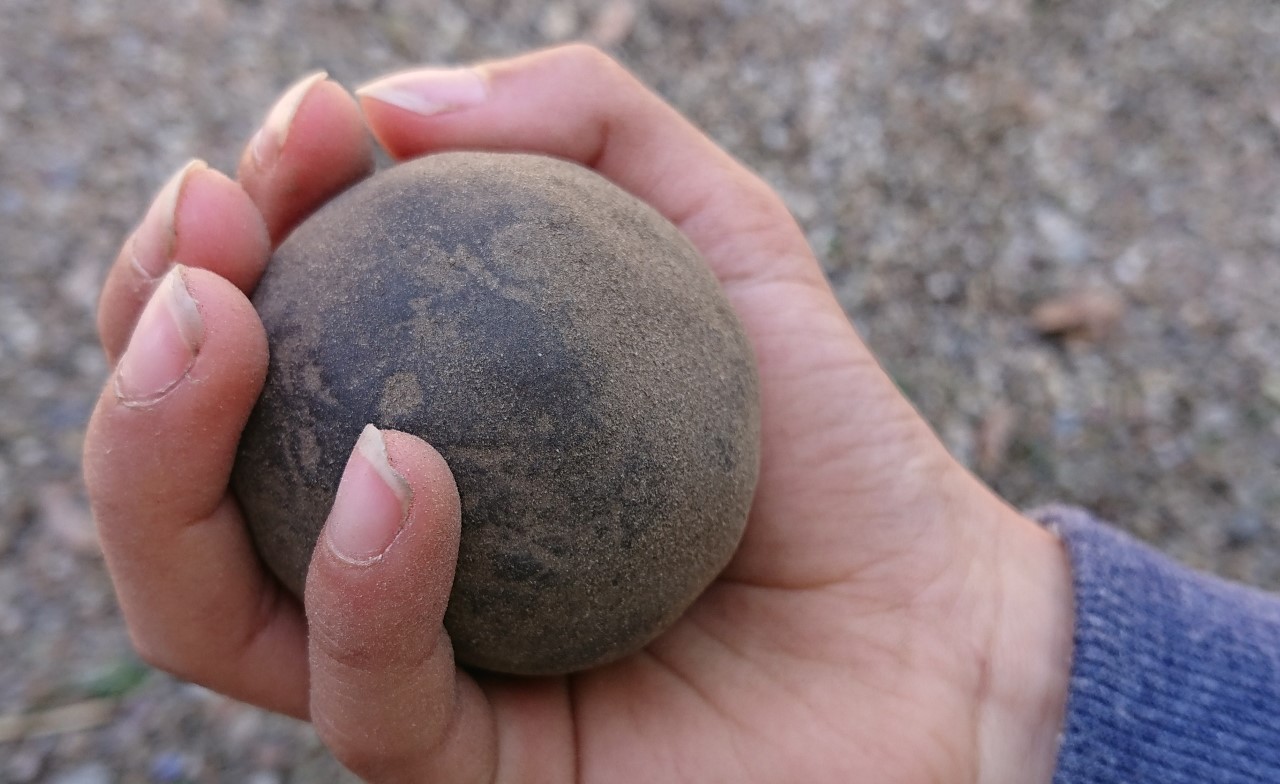
泥団子は、土と水を混ぜて作る手作りの玩具であり、土を丸め、磨き、乾燥させて作ります。泥団子は日本の伝統的な遊びの一つです。
Doro-Dango is a handmade toy made by mixing soil and water, then shaping, polishing, and drying it. It's one of Japan's traditional pastimes.
材料の用意 Preparation of Ingredients
土(粘土質のものが望ましい)
Soil (preferably clay-based)
水
Water
土と水の混合 Mix soil and water
土と水を混ぜ合わせ、ほどよく固い状態の土を作ります。
Create a soil mixture that is soft yet appropriately firm.
形成 Shape
土を手で丸め、小さな球体を作ります。
Shape the soil mixture by hand into a small sphere.
磨き Polish
乾いた布や手で泥団子を優しく磨きます。
Gently polish the mud ball using a dry cloth or your hands.
乾燥 Dry
泥団子を乾かします。自然に乾かすことも、太陽の光で乾かすこともできます。
Dry the mud ball. It can dry naturally or you can use sunlight to speed up the process.
磨き直し Polish it some more
完全に乾燥したら、更に磨きます。
Once completely dried, polish it some more.
完成 Finish
表面が滑らかで光沢が出るまで磨き上げます。
Polish until the surface becomes smooth and shiny.
泥団子を作るメリット Benefits of Making Doro-Dango
自然と触れ合い、手を使って何かを作る行為はストレスを減少させます。
Interacting with nature and using your hands to create something can reduce stress.
ストレスは免疫システムに悪影響を与えることが知られているため、ストレスが減少することで、間接的に免疫力が高まる可能性があります。
Since stress is known to have a negative impact on the immune system, reducing stress may indirectly improve your immunity.
また、外で泥団子を作ることで自然環境に触れることが多くなり、それが体の自然な免疫システムを刺激する可能性も考えられます。
Additionally, making mud balls outdoors exposes you more to the natural environment, which could potentially stimulate your body's natural immune system.
但し、泥や土には細菌やその他の微生物が含まれていることがあり、それらが感染症を引き起こす可能性があります。
However, soil and mud may contain bacteria and other microorganisms that could potentially cause infections.
したがって、泥団子作りを行う際には清潔な土を使用し、後で手をしっかりと洗う必要があります。
Therefore, it's important to use clean soil when making mud balls and to thoroughly wash your hands afterwards.
Vocabulary
- 土 (tsuchi) - Soil
- 混ぜる (mazeru) - Mix
- 手作り (tedzukuri) - Handmade
- 玩具 (omocha, or gangu) - Toy
- 丸める (marumeru) - Shape into a ball
- 磨く (migaku) - Polish
- 乾燥 (kansō) - Dry
- 伝統的 (dentōteki) - Traditional
- 遊び (asobi) - Play, game
- 材料 (zairyō) - Ingredients
- 状態 (jōtai) - Condition, state
- 粘土質 (nendoshitsu) - Clay-based
- 柔らかい (yawarakai) - Soft
- 固い (katai) - Firm
- 形成 (keisei) - Formation, shaping
- 球体 (kyūtai) - Sphere
- 完全 (kanzen) - Complete, perfect
- 表面 (hyōmen) - Surface
- 光沢 (kōtaku) - Shine, gloss
- 減少 (genshō) - Reduction, decrease
- ストレス (sutoresu) - Stress
- 免疫 (men'eki) - Immunity
- 細菌 (saikin) - Bacteria
- 感染症 (kansenshō) - Infection
- 清潔 (seiketsu) - Clean, hygienic